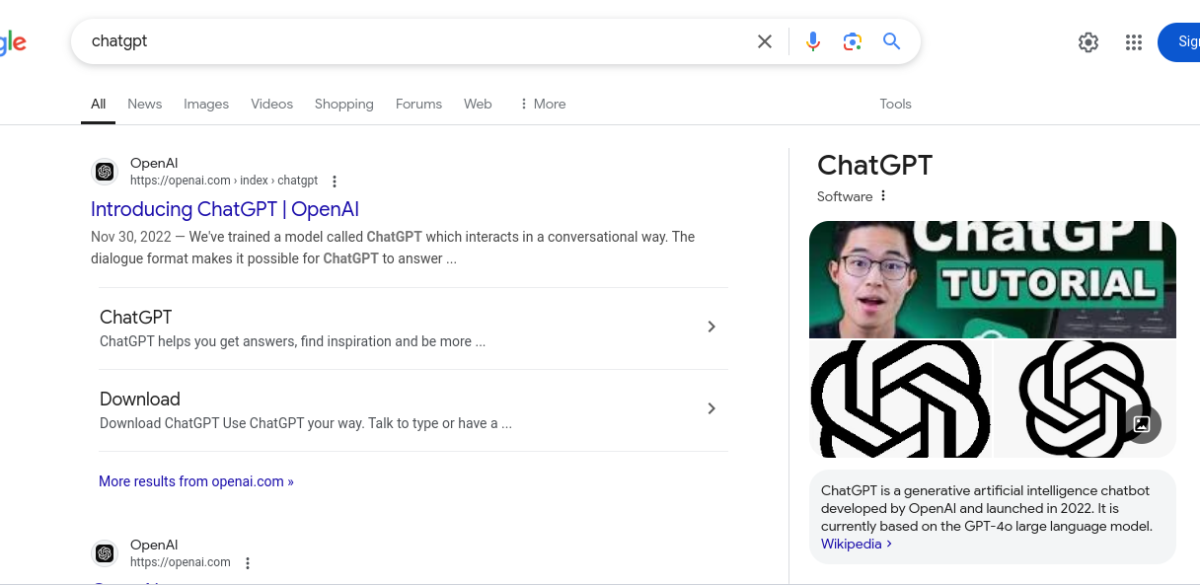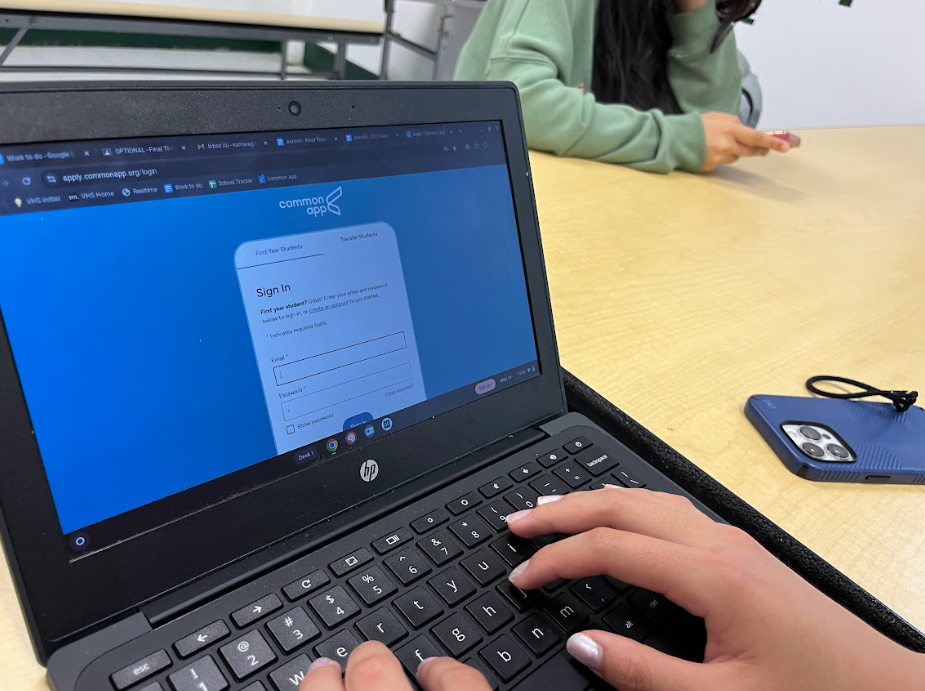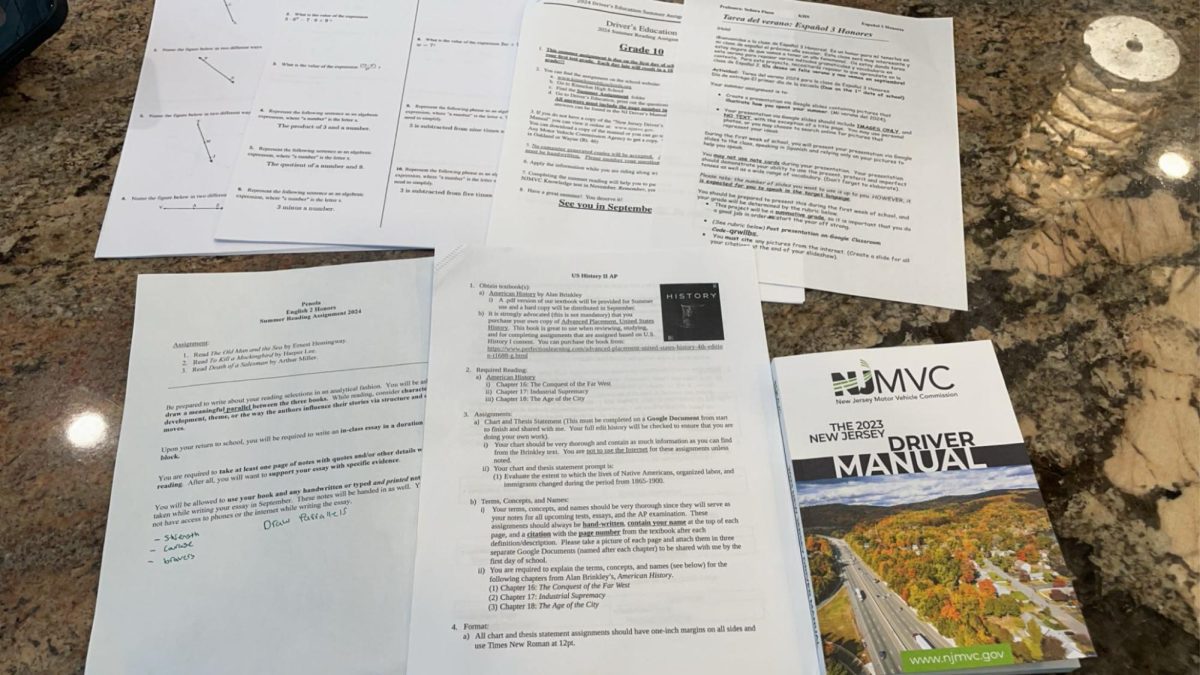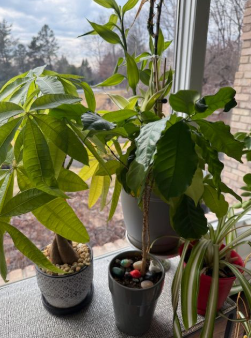As technology improves, many fear we are drawing nearer to a day that will change our lives forever: singularity. Singularity is often associated with the development of artificial intelligence surpassing human intelligence, forever changing the landscape of society.
Robots have taken over the world, rendering the human mind useless and weak. Technology has become an incurable disease that has transformed the world into a cold and careless void. Despite efforts, technology has become an untouchable part of daily life, invading the minds of young, susceptible students.
Since the initial release of ChatGPT in late 2022, artificial intelligence (AI) has become a common issue in schools. Since then, Google, Microsoft, Snapchat, and other companies have developed AI chatbots for conversation, task completion, and idea generation.
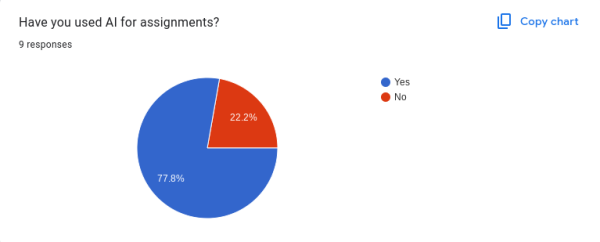
Specifically, in Kinnelon, AI has become a persistent issue in classrooms. Cases of cheating and plagiarism have been reported by various teachers and students. English teacher John Penola says, “AI is a concept that is absolutely crazy. I hate that I have to be scared of it as a teacher. I hope students learn to use it as a good and positive tool, but the scary part is when people use it in place of education.”
Similarly, students see the dangers of using AI for schoolwork. For instance, sophomore Erika Wang says, “I think AI generally hurts academics. The students who rely on AI for answers to even the simplest of questions are not putting in nearly enough of the time, effort, and work to understand the material that their academic performance depends on.”
Sophomore Millie Cho believes that there is both good and bad to using AI. Cho says, “AI can be a really good tool when used to generate lists, examples, and explanations. If you have trouble figuring out why attempts at reform failed during the Gilded Age, I would say that it’s more than okay to ask ChatGPT for a quick summary.”
On the other hand, some students believe that AI can be a useful tool when learning or revising. Apps like Photomath are promoted in schools to check homework answers and learn the steps to solve various problems. To illustrate, 67% of surveyed students believe that checking work with AI improves their understanding of the work.
Many students, like sophomore Manali Patel, agree with the survey, thinking of AI as a helper rather than an answer key. Patel says, “I know students use AI for a variety of things such as ideas for topics, help with a question, clarification, or other needs. It’s such a great resource for when students are stuck and is great for learning about anything you may need help with.”
Cho contrasts previous ideas, saying, “AI is a TOOL. It shouldn’t be used to do every part of your assignment. You still need to learn and absorb the material. Using it to plagiarize entire paragraphs is going too far.”
AI can be used on homework, projects, essays, and other common assignments. Whether students use AI responsibly is dependent on each person. While AI can be an escape for some, it is a tutor for others. So, where should the line be drawn?

